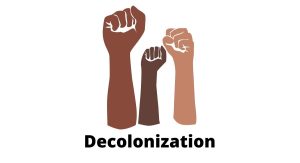The authors of a February 2024 Bulletin of the World Health Organization article call for global health actors to challenge current forms of corporate and financialized colonialism that operate through globalized systems of wealth extraction and profiteering. They note that most of the current narrative on decolonization focuses on correcting power imbalances between health actors in high-income and low-income countries and on challenging ideas and values of some wealthy countries that shape the practice of global health. The authors of…
Tag: Health Equity
Defunding UNWRA in Gaza is ‘collective punishment’ – Lancet & Health Justice Organizations
Health and political leaders globally have condemned defunding of UNRWA, the principle lifeline for the people of Gaza. Sharmila Devi, in the current issue of Lancet, quotes UN leaders and aid agency leaders (including WHO) “no other entity has the capacity to deliver the scale and breadth of assistance that 2·2 million people in Gaza urgently need,” the cuts are “collective punishment,” and “if a teacher is found to be a murderer, we don’t get calls to defund the school…
Tim Schwab & “The Bill Gates Problem” Town Hall Seattle Podcast
Tim Schwab, author of the recently published “The Bill Gates Problem: Reckoning with the myth of the good billionaire,” headlined a Seattle Town Hall event in December 2024 sponsored by the Community Alliance for Global Justice. In this podcast of the event, Tim explains how Bill Gates’ uses his foundation as a vehicle for unaccountable personal power and influence, using taxpayers dollars. He describes how dogmatic belief in the primacy of the private sector and their patent interests and the…
Rewriting the Script of Global Health
In the heart of Rwanda, a pharmaceutical revolution is unfolding, disrupting a global health order long dominated by high-income nations. This bold move by a nation determined to chart its own course in healthcare sovereignty embodies the spirit of decolonizing global health. It serves as a testament to the possibility of a world where equity in health is not just an aspirational goal but an actionable reality. This narrative of empowerment and systemic change ignites the conversation around decolonizing global…
[BOOKS] on Medical Appartheid
Medical apartheid refers to the systemic discrimination, segregation, and unequal treatment of individuals or groups based on their race or ethnicity within the healthcare system, leading to disparities in access, quality of care, and health outcomes. Book recommendations on medical appartheid: “Medical Apartheid: The Dark History of Medical Experimentation on Black Americans from Colonial Times to the Present” by Harriet A. Washington (2006) Washington meticulously documents the history of medical exploitation and mistreatment of Black Americans, offering a comprehensive…
Substandard medicines blamed for 285,000 childhood malaria, pneumonia deaths
VIdya Krishnan, an Indian Journalist writes about a “dirty secret in global health:” that rich countries get quality medicines and that the poor countries often get poison. Her op-ed in the Sept 11 New York Times describes the regulatory inequities between rich and poor nations. and how these inequities fail to prevent manufacture and export of substandard medicines. Rich countries have well-funded regulators keeping an eye on the safety and quality of drugs; most low income countries don’t have the…
DEI plays a critical role in addressing health disparities, despite political controversy surrounding it.
The diversity, equity, and inclusion (DEI) movement is under organized and escalating attack. The critics argue that “DEI Inc.” has gone too far-and should be rolled back or defunded because of clunky and controversial administrative moves.” It was recently reported by the National Bureau of Economic Research that even the wealthiest Black patients suffer worse health outcomes compared to their white peers. It is also common for uninsured patients with disabilities, undocumented immigrants, Asian Americans facing language barriers, and LGBTQ…
[BOOKS] on Structural Violence
Structural violence refers to the social, economic, or political harm ingrained in the underlying systems and structures of a society, causing long-term suffering and disadvantage for certain groups or individuals. Here are some suggested books on the topic: “Violence: Reflections on a National Epidemic” by James Gilligan (1997) Gilligan, a psychiatrist and expert on violence, explores the roots of violence in society, shedding light on the structural factors that contribute to its prevalence. This book is essential for understanding…





